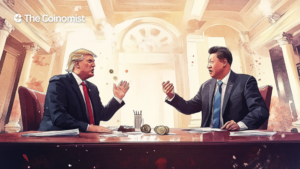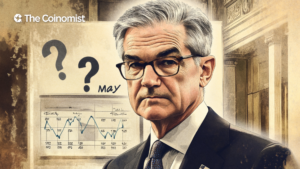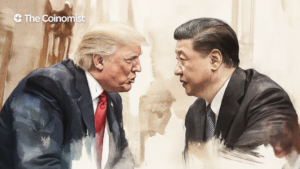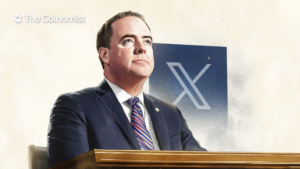Howard Lutnick: From Wall Street Powerhouse to Crypto Advocate in the Trump Administration
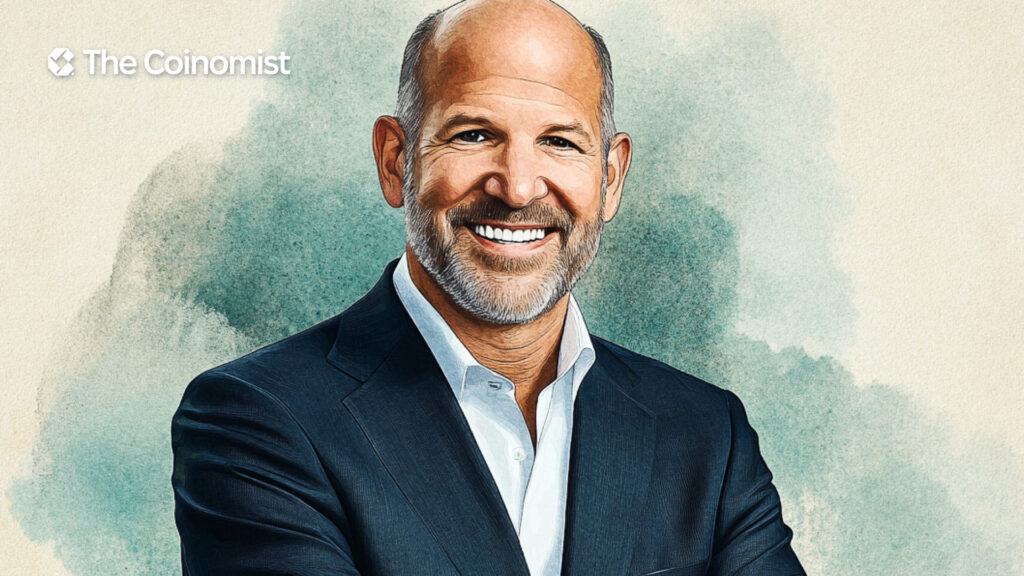
“We’re using the blockchain. We’re using bitcoin. We are going to use digital assets to pound forward.” These were the words of U.S. Secretary of Commerce Howard Lutnick at the country’s first crypto summit.
On this page
- Howard Lutnick: From Wall Street to Washington
- Bitcoin Reserve: Policy Shift and Hidden Beneficiaries
- Ethical Dilemma: Can Howard Lutnick Truly Distance Himself from Cantor Fitzgerald?
- Trump’s Inner Circle: A Network of Crypto Connections
- The Promise of Fighting Crime with AI: A Diversion?
- What’s Next: Public Policy or Personal Profit?
On March 7, 2025, speaking at the White House, Howard Lutnick made one thing clear: the Trump administration has fully embraced cryptocurrency. Nevertheless, behind this unexpected enthusiasm lies a more troubling reality.
Howard Lutnick, a prominent financier and longtime Trump donor, now plays a central role in shaping policies that directly impact the cryptocurrency industry. This is the same sector where his former firm, Cantor Fitzgerald, holds billions of dollars in digital assets.
Given Howard Lutnick’s net worth and deep financial ties, the potential conflict of interest is significant. His rise to power raises critical questions: Is the Trump administration crafting crypto policy to benefit the nation, or to advance the financial interests of insiders?
Howard Lutnick: From Wall Street to Washington
For decades, Howard Lutnick has been a key figure on Wall Street. After rising through the ranks at Cantor Fitzgerald, he became CEO in 1990 and later chairman, turning the firm into a global financial powerhouse.
He played a leading role in launching eSpeed, one of the earliest electronic trading platforms, and helped rebuild the company after the September 11 attacks, which took the lives of 658 Cantor Fitzgerald employees, including his brother Gary Lutnick.
However, Lutnick was not only a businessman. He also became a major political player. He supported Donald Trump’s presidential campaigns in 2020 and 2024, led his transition team, and organized multimillion-dollar fundraising events.
By November 2024, Howard Lutnick had raised over $11 million for Trump’s presidential campaign, solidifying his influence in Washington.
As a result, when Trump returned to the White House, Lutnick was considered a leading candidate for Treasury Secretary, especially after reports that Elon Musk endorses Howard Lutnick as Trump's Treasury Secretary. Ultimately, he was appointed Secretary of Commerce—a role that still gave him significant control over trade, economic policy, and, unexpectedly, the cryptocurrency sector.

Bitcoin Reserve: Policy Shift and Hidden Beneficiaries
The creation of Trump’s Strategic Bitcoin Reserve marked a major shift in U.S. crypto policy. Announced in March 2025, the plan calls for consolidating all Bitcoin previously seized by the U.S. government and holding it as a reserve asset, similar to how gold is stored.
Supporters claim the initiative could enhance the country’s financial stability. Meanwhile, critics argue it is a disguised attempt to boost Bitcoin’s price, serving the interests of early investors.
Who does having a strategic crypto reserve benefit? It’s not your everyday Americans. It benefits these guys,
said Jordan Libowitz, vice president at CREW (Citizens for Responsibility and Ethics in Washington), a government watchdog.
When Jordan mentioned “these guys,” he was referring to Cantor Fitzgerald, the firm led by Howard Lutnick. Cantor holds $1.5 billion worth of shares in MicroStrategy, the largest corporate Bitcoin holder. Furthermore, the company managed $87 million in the iShares Bitcoin Trust ETF. Further fueling concerns are Lutnick’s deep ties to Tether, the issuer of the world’s largest stablecoin, USDT.
When Trump signed the executive order to establish a Bitcoin reserve, the Bitcoin price surged. Cantor’s assets rose sharply in value. Even after the market cooled, the firm continued to profit. At the same time, Howard Lutnick, in his role as Secretary of Commerce, was responsible for promoting the very policies that drove those gains.

Ethical Dilemma: Can Howard Lutnick Truly Distance Himself from Cantor Fitzgerald?
Howard Lutnick’s latest 92-page financial disclosure listed assets in more than 800 companies, which he pledged to divest within 90 days.
However, neither the Department of Commerce nor Cantor Fitzgerald has provided any updates on the status of those divestments. Adding to the uncertainty is that the legal framework governing conflicts of interest in this context remains vague.
He ought to stay out of anything that Cantor Fitzgerald is doing and let other people handle that at the Commerce Department. Now, I’m going to tell you: There’s no law that requires him to do that,
said Richard Painter, former White House ethics lawyer.
In other words, while ethical questions persist, there is nothing in the legal system that prevents Howard Lutnick from shaping cryptocurrency policy, even if his former firm benefits as a result.

Trump’s Inner Circle: A Network of Crypto Connections
However, Howard Lutnick is not the only Trump administration official with holdings in digital assets. According to a report from Accountable.US, at least four senior officials currently hold up to $7.7 million in cryptocurrencies.
Treasury Secretary Scott Bessent and Director of National Intelligence Tulsi Gabbard pledged to divest up to $1 million in crypto assets. Yet, so far, there is no public evidence confirming that they followed through.
Even more notably, Donald Trump has personal exposure to crypto. His family is linked to the DeFi project World Liberty Financial and meme coins such as TRUMP and MELANIA.
Moreover, these assets saw a sharp increase in value after the announcement of a Bitcoin reserve, raising concerns about the potential for President Trump to profit personally from government policy.
Corruption concerns grew further when the SEC dropped its fraud investigation into crypto magnate Justin Sun, who had previously invested $75 million in World Liberty tokens—assets that could have financially benefited Trump himself.
This is, I guess, going to be the new approach – hands-off crypto, not enforcing fraud. Аnd I don’t think it’s going to end well,
cautioned Painter.

The Promise of Fighting Crime with AI: A Diversion?
Amid growing criticism over fraud risks in the crypto market, Howard Lutnick offered a bold solution: artificial intelligence.
I think AI tools used by the U.S. government running through the market will rid the world of criminals using blockchain,
he said during a Senate hearing.
Additionally, Lutnick claimed that the transparency of cryptocurrencies makes tracking illegal transactions even easier than in traditional financial systems. He added that the two most favored tools of the criminal world are dollars and euros, which, when used in physical form, are nearly impossible to trace.
Lutnick was also firm in his response to arguments about fraud in blockchain:
It’s like blaming Apple because criminals use Apple phones.
However, lawmakers, including Senator Maria Cantwell, remained unconvinced. She called for immediate regulatory action, stressing the need for mandatory Know Your Customer (KYC) and Anti-Money Laundering (AML) requirements for stablecoins.
There’s no need to wait years to find AI solutions to this problem. We need better rules today,
Cantwell said.

What’s Next: Public Policy or Personal Profit?
Howard Lutnick is no newcomer to power. He has dominated Wall Street and maneuvered skillfully through political circles.
Now, as Secretary of Commerce, he finds himself at the heart of one of the most significant economic transformations of our time—the U.S. government’s adoption of cryptocurrency.
But can Lutnick truly serve the public interest when billions are on the line? Or is he shaping policy to keep Cantor Fitzgerald positioned as a key player in the crypto economy?
His financial separation from his former company has yet to be confirmed. Moreover, his influence over crypto regulation closely mirrors the firm's business interests. And as Trump’s pro-crypto agenda accelerates, the primary beneficiaries appear to be the same insiders who secured their positions long before these policies were announced.
Now under the watchful eye of ethics groups and lawmakers, the months ahead will reveal whether Lutnick is truly the architect of America’s crypto future or a government official leveraging his role to protect personal interests.
The conflict remains unresolved. However, one thing is certain: Howard Lutnick is not just shaping crypto policy—he is shaping the future of financial power in Washington.
The content on The Coinomist is for informational purposes only and should not be interpreted as financial advice. While we strive to provide accurate and up-to-date information, we do not guarantee the accuracy, completeness, or reliability of any content. Neither we accept liability for any errors or omissions in the information provided or for any financial losses incurred as a result of relying on this information. Actions based on this content are at your own risk. Always do your own research and consult a professional. See our Terms, Privacy Policy, and Disclaimers for more details.





